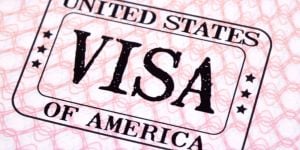
Whether you are travelling to the United States for a visit, moving there for work, or are already living in the country as an expat, you need to be aware of your health insurance options. This article looks into healthcare insurance in the United States and can help you make a more informed decision.
Healthcare in the United States can be a double-edged sword. On the one hand, medical facilities and healthcare quality in the United States are among the best in the world. On the other hand, treatments and medications can be prohibitively expensive because the US does not have a public healthcare system in place. It is highly recommended that travellers or expats to the United States purchase private health insurance according to their needs when moving to the US.
Important:
In case of an emergency, you will never be denied medical care. However, after treatment, you will be asked for personal details and held responsible for any charges related to your emergency care, which can be quite expensive.
So, what is the best health insurance for an expat in the US?
Selecting the right health insurance package is a highly personalized decision influenced by various factors. While some general criteria can guide your choice, your specific needs and circumstances will play a significant role in making the best decision for you. Here are essential aspects to assess when evaluating health insurance options:
- network coverage: Determine if the hospitals, pharmacies, and healthcare providers you prefer are part of the insurance provider's network. Having access to preferred healthcare facilities and specialists is crucial for receiving the best care;
- monthly premiums: Evaluate the monthly premium amount you'll need to pay for the insurance coverage. Finding a balance between affordability and comprehensive coverage is key;
- deductible and out-of-pocket costs: Understand the deductible, which is the amount you must pay before your coverage kicks in. Consider how much you're comfortable paying out of pocket for medical expenses before insurance starts covering costs;
- prescription coverage: Check whether the insurance plan covers your regular prescriptions and medications. Adequate prescription coverage can significantly impact your healthcare costs;
- additional costs: Be aware of any extra costs associated with the plan, such as co-payments, co-insurance, and fees for specific services. These can affect the overall affordability of the insurance package.
Healthcare system in the US
Unlike in most of Europe, the United States doesn't have a national healthcare system. This means that most American residents need to take care of their health insurance needs privately.
Several population groups have their health needs covered by the government via Medicare and Medicaid:
- Medicare offers health coverage for people aged 65 or over;
- Medicaid provides health coverage for individuals with low income.
Good to know:
The healthcare system in the US has been significantly reformed with the Patient Protection and Affordable Care Act (PPACA) or Affordable Care Act (ACA). The act is often nicknamed "Obamacare" as it was passed under the presidency of Barack Obama.
The main points of the reform include:
- universal medical coverage (involving an obligation to purchase medical insurance individually or through an employer);
- online health insurance marketplaces offering exclusively ACA-compliant insurance plans;
- expansion of Medicaid to cover individuals with incomes of 138% of the US federal poverty line (FPL);
- guaranteed minimum essential health coverage.
Affordable Care Act for expats in the US
If you are working for a company in the USA for more than 30 hours per week and if said company has over fifty employees, your employer is obligated to provide you with ACA-compliant private health insurance. Failure to do so will result in a penalty for the employer. Employees are also required to pay a part of the insurance premium offered by the employer based on their household income.
If you decide to take out an individual insurance policy, the rules are a bit different. Previously, all persons residing in the US (including expats) had to purchase an ACA-compliant health insurance policy. Otherwise, they would risk paying a fine.
Now, however, the federal government has revoked this mandate. This means that if you do not take out ACA-compliant health insurance, you will no longer need to pay a penalty. With that being established, it's now each state's decision whether their residents must be covered by an ACA-compliant medical plan. After the new legislation has passed, several states have already re-introduced the mandate for ACA-compliant health insurance (Massachusetts, the District of Columbia, New Jersey, California, and Rhode Island). Other states may also be considering this option.
This is why, as an expat in the USA, you need to check whether the mandate for ACA-compliant insurance is in place in the state of your residence. If it's not, you can take out local or international insurance of your choosing without worrying about paying the penalty. If it is, you must decide which option is better for you: taking out an ACA-compliant medical plan or getting a local or international health insurance plan of your choosing and paying the penalty. Sometimes, opting for a non-ACA-compliant plan and paying the penalty may be more budget-friendly.
If you are moving to the United States as an employee of a foreign company doing business in the US, you will not be registered with the American healthcare system. Based on the social security agreements that your country of residency may have with the United States, you may be able to use your current health insurance. To learn more about this, you will need to get in touch with your healthcare provider in your country.
If you are travelling to the United States for tourism or a short stay, you won't need to take out an ACA-compliant insurance plan. However, it is essential that you purchase valid insurance that will cover you throughout your stay in the US, as medical costs in the country are very high.
Health insurance in the US
Medical treatments in the USA are some of the most expensive in the world. This is why having a solid health insurance plan is essential when living in or visiting the country. To manage medical costs, health insurance companies tend to work with their network of hospitals and healthcare professionals. When insured by a specific company, you will most likely need to seek medical help through their network if you want the cost covered by your plan.
With that, some insurance companies may offer more flexible conditions, allowing their policyholders to be treated outside their medical network. This, however, is most likely to come at an extra cost.
All private health insurance policies in the US operate off of a system of premiums (fees) and deductibles (the amount up to which the individual is required to pay). Based on your insurance package, you will pay a premium each month. When you have an operation or long-term treatment, your insurance company will begin to cover your care only after the deductible is met. The lower the deductible, the higher the monthly premium. Routine doctor visits and exams are covered by a flat fee (called a co-pay). Prescription medications are also covered in health insurance packages, either by a co-pay or once your deductible is met.
Your employer can provide private health insurance, or you may purchase coverage individually. Employer-offered health insurance can come in the form of a lower premium or a Health Savings Account, which allows you to deposit untaxed pay into a special account used solely for medical services. It is not required that US employers subsidize health coverage for employees. However, since healthcare insurance is expensive, it is a benefit that many employees seek when applying for a job.
Medical costs in the US
The costs of medical treatments in the country vary, depending on which hospital you choose, what type of treatment you need, the city where you receive treatment, and what health insurance you have.
- A general consultation with a doctor can cost from $100 to $200. However, without insurance, the cost of going to a doctor can range from $300 to $600, depending on whether you see a specialist, if lab tests are completed, and if any procedures are done.
- Without insurance, the average cost of an ambulance ride is around $1,200. The average charge for an Advanced Life Support (ALS) ambulance ride is $1,277, and a Basic Life Support (BLS) ambulance ride is $940.
- The cost of additional tests can indeed range from $100 to over $1,000, depending on the type of test and location.
- The average per-day hospital cost in the US is $2,883, with California ($4,181) being the most expensive and Mississippi ($1,305) the least.
International health insurance
As we've mentioned earlier, if you are a tax resident in the United States, you no longer have to buy health insurance that is ACA-compliant. If the state of your residence doesn't require you to purchase ACA-approved insurance, you can go with either of the two options below:
- you can buy local insurance that will only keep you covered in the United States;
- or you can buy international insurance - this will cover you in other countries and the United States.
International health insurance may prove to be a better option for expats and the expatriate lifestyle in general, especially if you travel a lot between the US and your home country. If you have international health insurance, you can decide where you want to be treated: it can be your home, the United States, or even another country. Moreover, if you choose to relocate after your stay in the United States, your insurance coverage will follow.
If you live in a state that requires you to purchase ACA-compliant health insurance, your options may be a bit more limited, but you can also find an ACA-compliant international insurance package. You can also choose to simply pay the penalty assigned by the state and purchase the type of health insurance you need if it's not ACA-compliant. In some states, the penalty can range from a few hundred dollars to over a thousand dollars per adult and a reduced amount for each child in the household who is not covered by insurance. It's important to note that these penalties can be subject to change, and the actual penalty amounts may differ based on factors such as income and household composition.
You can subscribe to international health insurance before moving to the US. There are many insurance companies to choose from in the USA, according to your needs and budget.
Important:
Familiarize with your policy before you sign up for coverage. Ensure you understand what treatments your insurance will cover, how much they will cover, and what you will pay out of pocket.
Good to know:
A social security number (SSN) or Individual Tax Identification Number (ITIN) is used to track individuals for tax purposes and is a common ID in the United States. Permanent and temporary residents should request an SSN or ITIN when they are granted a non-visitor visa. To sign up for a private health insurance policy, you must provide one of these pieces of identification.
Health insurance for students
If you are in the United States to study and are enrolled in a university full-time, your university will typically provide you with a subsidized insurance package that has been specifically designed for students. These plans sometimes offer international coverage, which makes them a much better overall deal for students compared to buying standard insurance. Make sure to check with your university about student insurance packages available.
Emergency number: 911, for medical emergency, police, and fire brigade.
Useful links:
We do our best to provide accurate and up to date information. However, if you have noticed any inaccuracies in this article, please let us know in the comments section below.











